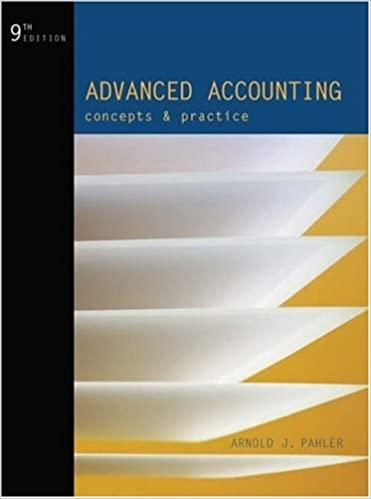Question
Case 3-6 Full Disclosure: The Case of the Morally Challenged AP Clerk (a GVV case) John Stanton, CPA, is a seasoned accountant who left his
Case 3-6 Full Disclosure: The Case of the Morally Challenged AP Clerk (a GVV case)
John Stanton, CPA, is a seasoned accountant who left his Big-4 CPA firm Senior Manager position to become the CFO of a highly successful hundred million-dollar privately held manufacturer of solar panels. The company wanted Johns expertise in the renewable energy sector and his pedigree from working for one of the Big-4 firms. The company plans to go public later this year and wants John to lead the effort. Everything went well for the first two months until the controller, Diane Hopkins, who is also a CPA, came to John with a problem. She discovered that one of her accounts payable clerks has been embezzling money from the company by processing and approving fictitious invoices from shell companies for fictitious purchases that the AP clerk had created. Diane estimated that the clerk had been able to steal approximately $250,000 over the year and a half they worked at the company. Diane and John agreed to fire the clerk immediately and did so. They also agreed that John would report the matter to the police. John picked up the phone and called the CEO, David Laskey, who was also the majority shareholder, to give him a heads up on what had transpired. Laskey asked John to come to his office the next day to discuss the need to report the matter to the police. Laskey shared with John that he did not think it was a good idea to report it to the police as he was fearful of the effect on taking the company public and the initial public offering share price. After the call, John reflected on what it would mean to not report the matter to the police and whether there were others he needed to inform about the matter.
1- To whom do John Stanton and David Laskey owe their ultimate responsibility? Explain.
2- If Stanton were to agree not to report this embezzlement to the police or disclose it in the annual report and prospectus, would he be violating the integrity or due care rule in the AICPA Code of Professional Conduct? What about acts discreditable?
3- Assume Stanton is preparing for the meeting with Laskey. Consider the following in deciding what he should do.
- What can he say to Laskey to counteract the reasons Laskey provided not to notify the police?
- Who can Stanton rely on for support in this matter? What might he say to that person(s) to encourage their support?
- What levers can Stanton use to convince Laskey as to the correct course of action given the companys impending IPO?
- What should Stanton do next if Laskey orders him to drop the matter?
Step by Step Solution
There are 3 Steps involved in it
Step: 1

Get Instant Access to Expert-Tailored Solutions
See step-by-step solutions with expert insights and AI powered tools for academic success
Step: 2

Step: 3

Ace Your Homework with AI
Get the answers you need in no time with our AI-driven, step-by-step assistance
Get Started


